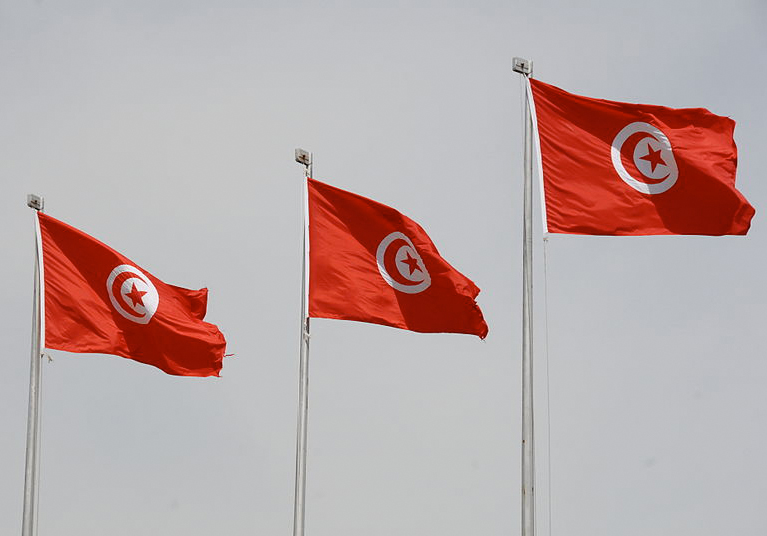The International Commission of Jurists (ICJ) condemns the Tunisian authorities’ continued attacks on opposition leaders, including the recent arbitrary arrest and detention of Lofti Mraihi, the Republican People’s Union party leader and prospective presidential candidate.
On 3 July 2024, just over three months before presidential elections are due to be held on 6 October 2024, the Tunisian authorities arrested Mraihi and detained him, purportedly in connection with allegations of money laundering.
“The Tunisian authorities’ arrest and detention of yet another presidential candidate is a naked attempt to stymie any semblance of credible challenge to Kaïs Saïed in the upcoming presidential election,” said Saïd Benarbia, ICJ Middle East and North Africa Programme Director. “The Tunisian authorities must immediately release Lofti Mraihi and cease all ongoing politicised and arbitrary prosecutions of all opposition figures.”
In January 2024, the Tunis first instance tribunal convicted Mraihi of spurious “fake news” charges under article 24 of decree-law 54 on cybercrime for a social media post deemed critical of the President, and sentenced him to a suspended six-month prison term.
The attacks against Mraihi are part of a wider campaign to silence all opposition leaders through arbitrary criminal proceedings, thus effectively preventing them from running in the presidential elections.
On 3 October 2023, the Tunisian authorities arrested and detained presidential candidate and leader of the Destourien Libre Party, Abir Moussi, on spurious charges of “attempting to change the nature of the State and incitement to take-up arms against another”, which carry heavy sentences, including the death penalty, upon conviction. Since then, Moussi has spent over nine months in arbitrary pre-trial detention.
On 1 February 2024, the Tunis first instance tribunal convicted the leader of the Ennahda Party, Rached Ghannouchi, , together with the ex-foreign Minister, Rafik Abdessalem, and sentenced them to three years’ imprisonment in relation to their party’s alleged receipt of foreign funding. In 2023, the Tunis court of appeal also convicted Ghannouchi of “terrorism-related” offences and sentenced him to 15 months’ imprisonment in another case.
On 23 May 2024, one month after he had announced his intention to contest the presidential race, an ex-MP and writer, Safi Said, was convicted and sentenced to four months’ imprisonment for fraud.
Since 2022, the Tunisian authorities have targeted numerous other opposition figures and perceived political opponents of the President, including through the so-called “conspiracy case”. Former leader of the Courant Democrate Party, Ghazi Chaouachi, leader of the Republican Party and presidential candidate, Issam Chebbi, former senior member of the Nidaa Tounes Party, Ridha Belhaj, leader of the Salvation Front Party, Jaouher Ben Mbarek, head of Joussour political think tank, Khayem Turki, and former leader of Ennahdha, Abdelhamid Jelassi, have all spent over 14 months in arbitrary pre-trial detention on spurious conspiracy charges under the Tunisian Penal Code and “Counter-Terrorism” Law.
The ICJ is deeply concerned that, in addition to violating the rights to liberty and to a fair trial, among other human rights, of all opposition leaders who are subjected to ongoing arbitrary detention and prosecution, the Tunisian authorities are undermining the right of Tunisians to take part in the conduct of public affairs through fair and transparent elections.
The organization’s concern is further compounded by the executive’s ongoing efforts to undermine the right to freedom of expression and to media freedom, in particular through the instrumentalization of Decree Law-2002-54 on Cybercrime and similar provisions in the Penal Code and Telecommunications Code, which are often used to arbitrarily prosecute and detain journalists, lawyers and activists solely for carrying out their professional duties or for their legitimate exercise of their right to freedom of expression.
The ICJ calls on the Tunisian authorities to:
- enable free and fair elections to proceed in accordance with international standards, including by releasing all arbitrarily detained political opponents and journalists and by respecting their human rights, including their right to freedom of expression;
- drop all arbitrary criminal proceedings against opposition leaders;
- immediately and unconditionally release all those who are arbitrarily detained; and
- quash all wrongful convictions.




